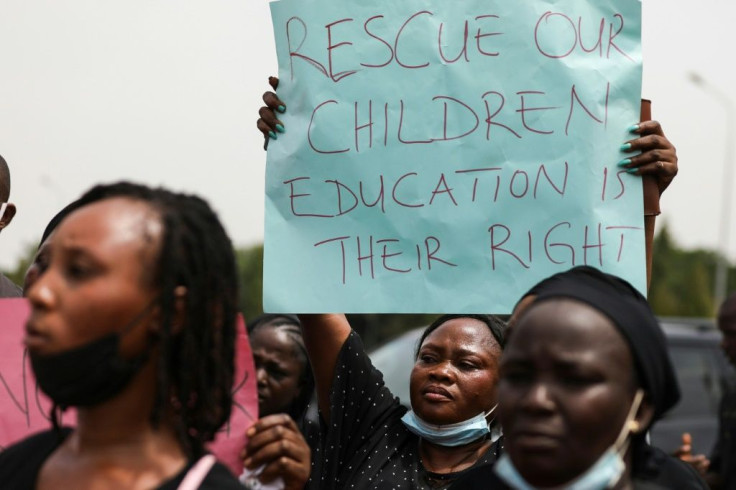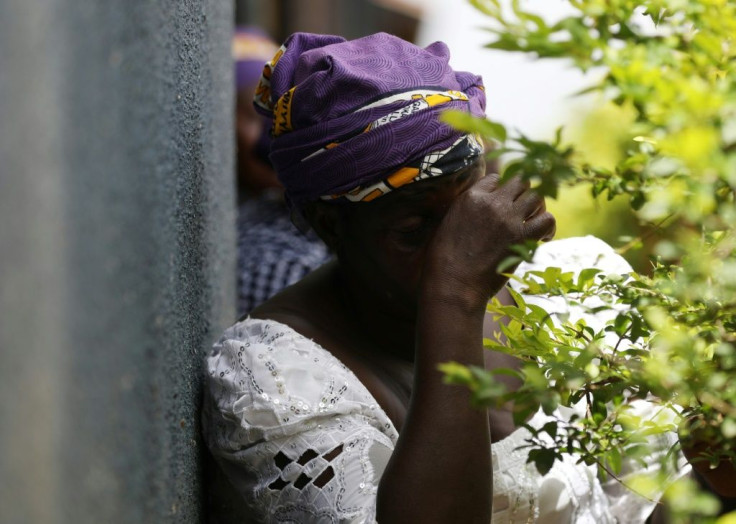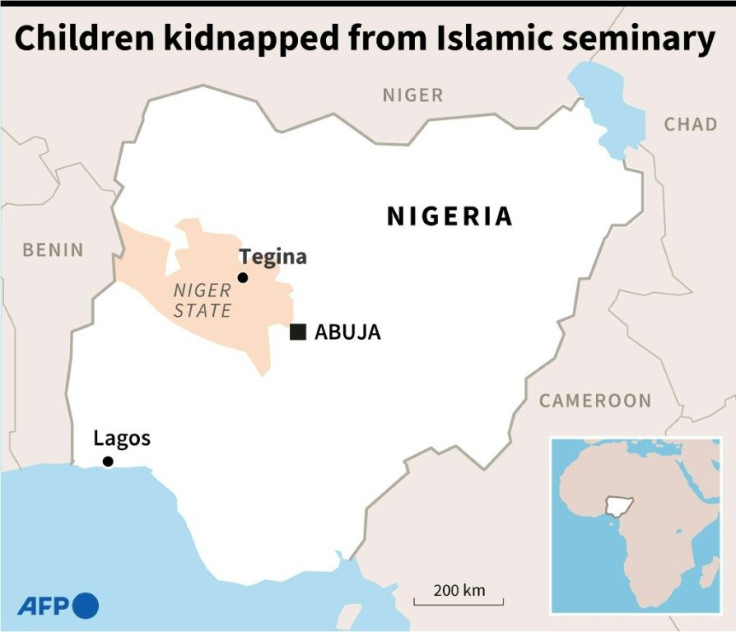Deaths Deepen Fears Two Months After Nigeria Student Abduction
Two and a half months after gunmen kidnapped more than 100 children from a Nigerian Islamic seminary in the country's northwest, parents have learnt four pupils have died in captivity.
But no-one can say whose children are among the dead, leaving families devastated, with hope dwindling they will see their sons and daughters again, parents said.
After 78 days, the Tegina seminary abduction is now one of the longest ongoing mass kidnappings in a string of attacks to hit Nigerian schools and colleges this year.
On May 30 around 200 motorcycle-riding gunmen from criminal gangs known locally as bandits stormed Tegina town in Niger state's Rafi district, abducting 136 pupils from the Islamic seminary.
Parents learned of the deaths from an emissary who had been sent with a payment, only to be held himself before he was set free again.

"We got the shocking news of the deaths of four of the children from the person sent to deliver the ransom," said Maryam Mohammed who has seven of her 12 children among those captured.
"Since then every parent has been in increased suspense because no one knows if his child was among the dead."
In June, 15 of the hostages escaped from their abductors while they were asleep in a remote village in neighbouring Zamfara state where they were being held.
On August 1, the ransom envoy who was sent to deliver the 30 million naira ($73,000) in cash returned to Tegina with the news of the death of four of the pupils.
The envoy Kassim Tegina was himself detained by the kidnappers for a week after delivering the ransom, as they demanded more money before releasing the children, according to seminary officials.

Mohammed said the Tegina ransom envoy could not identify the deceased children as the kidnappers only showed him four graves they claimed belonged to the dead pupils.
Two of Mohammed's kidnapped children suffer from pneumonia "which makes me feel they could be among the dead."
"I have every reason to fear for their lives," she said, wondering about their medication and being kept unprotected in the bush for two and half months.
Heavily armed gangs have long terrorised parts of northwest and central Nigeria, but around 1,000 children have been snatched for ransom in a series of mass abductions at schools this year, according to the UN.
Most have been released after negotiations or ransom payments, but hundreds are still being held in forest hideouts as their captors try to negotiate payments.

Among them are 81 students still being held from a Kaduna State Baptist school who were snatched on July 5.
Fati Abdullahi's 18-year old daughter and son, 15, were also among the kidnapped pupils in Tegina. And like Mohammed, she has been devastated since she heard of the deaths.
Abdullahi's concern is the safety of the "grown-up girls" among the pupils who she fears faced the risk of abuse from their captors.
"My mind will be at peace if I know my daughter is dead rather than living with this nightmare of having her honour violated," said Abdullahi.
"I can't imagine my daughter and the other girls her age living in the same clothes all these days, without access to sanitary needs," she said.
Niger state authorities have repeatedly said they would not pay ransom to kidnappers but were willing to negotiate.
Parents of the kidnapped pupils said they raised the ransom from savings and donations to have their children freed.
Mohammed's husband sold his two parcels of land and their house to raise part of the ransom.
"We have sold all we have. We sold our only house... just to see our children back home but our hope was dashed," said Mohammed.
"We feel abandoned by the government and Nigerians, everybody has been silent about our children and the government doesn't seem to care."
Mohammed wondered how a Niger state government official could be released a few days after his abduction while their children remained in captivity.
She was referring to Sani Idris, Niger state's information commissioner who was kidnapped from his country home on a Monday and freed the next Thursday, according to local media reports.
"Faith in Allah and counseling from my other children," Mohammed said. "These are my only strength against the storm."
© Copyright AFP 2024. All rights reserved.





















